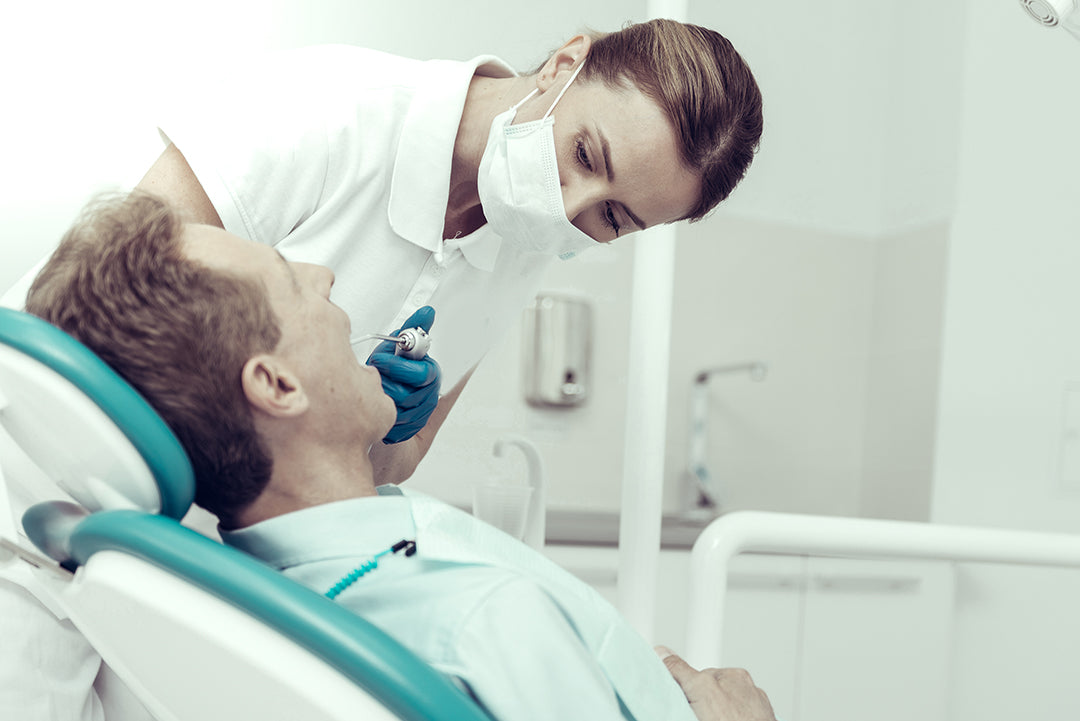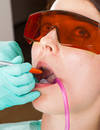No products in the cart.

In modern dentistry, soft tissue diode lasers have revolutionized various periodontal procedures, including sulcular debridement. This advanced technology offers significant advantages over traditional methods, improving patient comfort, treatment outcomes, and overall oral health. In this blog post, we will explore the patient benefits of using soft tissue diode lasers for sulcular debridement and how these benefits translate into advantages for dental practices.
- Minimally Invasive and Precise Treatment: Soft tissue diode lasers enable minimally invasive sulcular debridement, ensuring precise removal of diseased or inflamed tissue while minimizing damage to healthy tissues. The precise targeting and laser's ability perform without causing trauma or discomfort will results is a more comfortable experience for patients, who appreciate the gentler approach to treatment.
- Reduced Bleeding and Discomfort: Compared to traditional methods that involve manual scaling and root planing, soft tissue diode lasers provide excellent hemostasis. The laser energy simultaneously debrides and cauterizes the tissue, reducing bleeding and postoperative discomfort. This benefit is supported by Gordan Christensen's Clinicians' Report, which emphasizes the reduced bleeding associated with soft tissue diode lasers during periodontal procedures (Christensen, 2018). Patients experience less pain, swelling, and sensitivity following sulcular debridement, leading to improved postoperative recovery.
- Enhanced Healing and Tissue Regeneration: Soft tissue diode lasers promote faster healing and tissue regeneration. The laser energy stimulates the growth of new, healthy tissue. This effect is particularly beneficial for patients with periodontal disease, as it aids in the regeneration of periodontal pockets and promotes a healthier oral environment. Research published in the Journal of Laser and Health Academy highlights the improved healing outcomes achieved with soft tissue diode lasers in periodontal therapy (Romanos et al., 2014).
- Efficient Removal of Biofilm and Bacterial Debris: Soft tissue diode lasers effectively eliminate microbial biofilm and bacterial debris from periodontal pockets during sulcular debridement. This thorough debridement reduces the bacterial load and promotes a healthier periodontal environment. A study published in the Journal of Clinical Periodontology supports the efficacy of soft tissue diode lasers in reducing bacterial counts during periodontal therapy (Crespi et al., 2019).
Conclusion: The utilization of soft tissue diode lasers for sulcular debridement provides numerous benefits for patients, including minimally invasive treatment, reduced bleeding and discomfort, and enhanced healing. These patient benefits translate into advantages for dental practices, as they contribute to increased patient satisfaction, improved treatment outcomes, and enhanced practice reputation. By incorporating soft tissue diode lasers into their periodontal protocols, dental practices can deliver superior care and position themselves at the forefront of modern periodontal therapy.
References:
Christensen, G. J. (2018). Lasers in dentistry—2018. Clinicians' Report, 11(7), 1-4.
Crespi, R., Capparé, P., Toscanelli, I., Gherlone, E., & Romanos, G. E. (2019). Histologic and Microbiologic Wound Healing after a De-epithelialized Technique with the Use of a Diode Laser in Implant Surface Decontamination
Leave a comment



